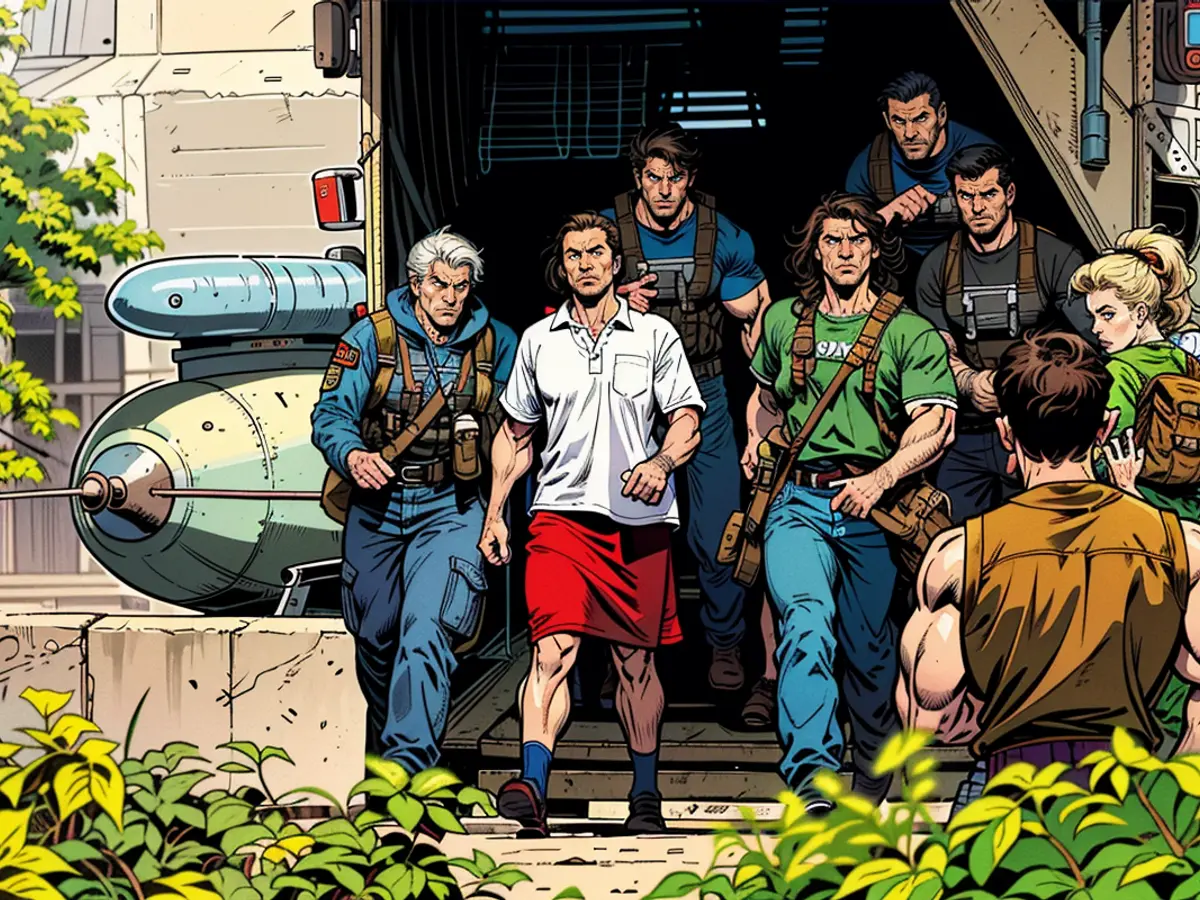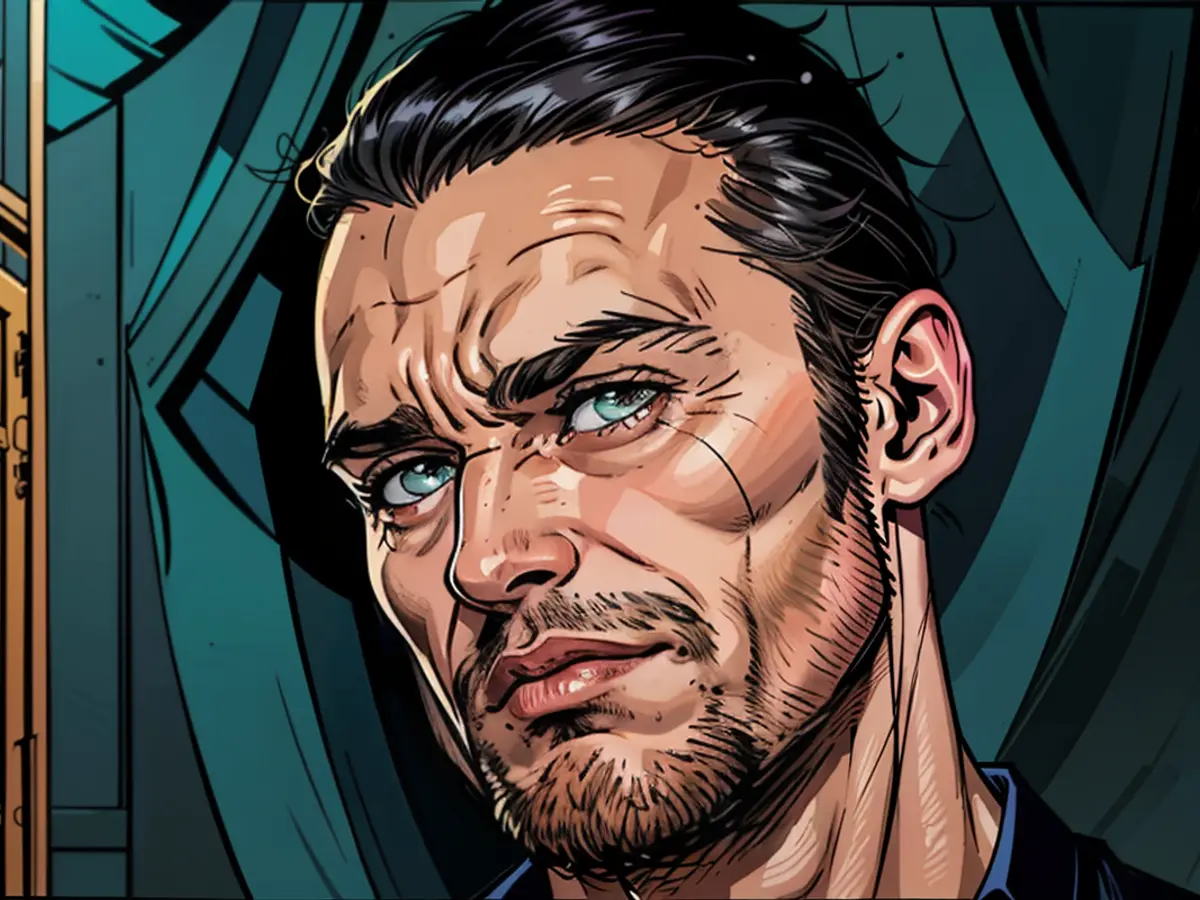‘Tomorrow, I kill you:’ Rescued hostage details psychological abuse during eight months of Hamas captivity
The 27-year-old said he suffered intense psychological – and some physical – abuse at the hands of Hamas. He cannot bring himself to describe all that happened to him and the two other hostages he was kept with during his eight months of captivity in Gaza.
After being snatched from the Nova music festival on October 7, Kozlov, a Russian-Israeli citizen, said he was tied up for “three days with rope, then until the middle of December with chains.” During these months he was subjected to “creative” forms of punishment: One guard “told us a lot that Israel wants to kill us” and that they were a problem from which Israel was trying to rid itself.
Kozlov strove not to believe the lies, he said, but the result was that, when Israeli soldiers last month burst into the building in which he was being held, he thought they had been sent to kill him.
Instead, it was a stunning rescue operation that brought him and the two others home – as well as Noa Argamani, who was held in a nearby building. But it left in its wake a trail of destruction: Gaza authorities say at least 274 Palestinians were killed in the raid and the ensuing firefight with Hamas militants.
In an interview with CNN, Kozlov detailed his months of captivity in Gaza, the psychological torture he weathered, the threats he faced, and his desire for Israel and Hamas to strike a deal to release the remaining hostages.

Kozlov was nearing the end of his shift as a security guard at the Nova festival when Hamas fighters began to pour over the border. He had moved from Russia to Israel two years earlier, and taken the job because it was “easy money.” When he clocked off, Kozlov thought “I will come back home, I will sleep and everything will be good. But no, it didn’t happen.”
Minutes later, he was sprinting through a forest with “maybe 200, 300 people,” panicked by the sound of gunshots and a stream of gruesome nearby videos that had already emerged online. But as they stumbled out into a field, Kozlov saw – he recalled in broken English – “a car full of guys in green uniform. And they shoot in the air, they shoot already on us.”
Hiding in the bushes was no help. He was swiftly found and taken to Gaza, where he was held in several different places with Almog Meir Jan and Shlomi Ziv, before their eventual rescue in Nuseirat, in the center of the enclave.
On his first day, his captor “took the fabric from my eyes and showed me with signs” what he was planning to do. The man pointed to himself – “I” – then tapped his watch – “tomorrow” – then pointed to Kozlov – “you” – then made a camera sign, clicking its shutter – “film” – then made a gun with his fingers, pulling the trigger – “kill.”
Kozlov said he thought that day would be his last, but – as the hours passed – that fear slowly subsided. Days later, he said he understood “that probably they’re not gonna kill us.” Using signs again, they explained to Kozlov that they wanted to swap him: “You’re going to Israel, our people go to Gaza and the West Bank.”
For the first three months, the sound of Israeli bombing was constant, Kozlov said: “We were afraid of every bomb that we heard. Every time you started to hide in the corners of our room.” His captors laughed, he said, asking what they were afraid of.

They were moved between houses several times, Kozlov said, with some places giving them enough food. After being unchained in December, some places where he was held gave him the chance to exercise – “squats, pushups” and the like.
But he was exposed to prolonged psychological abuse, he said, by guards watching over them wearing masks, holding Kalashnikovs and a “big knife.” The main guard, he said, had a “split” personality and often “got crazy.”
“He has two personalities,” Kozlov said. “He told us: ‘I have two faces: A good one, but I don’t want you to see the second face – like, I can kill you.”
Some mornings, the guard would be friendly, offering to play cards with them. But in other mornings Kozlov would “wake up and you understand – ah, the second face. You don’t talk with him at all.”
Kozlov would be punished for arbitrary things, he said. Once, after washing his hands with drinking water before eating, the guard “noticed and he said, ‘I told you not to do this, yes?’” The guard had someone cover Kozlov with “really thick blankets, in the middle of May,” and leave him in the heat for an hour and a half.
Kozlov’s testimony chimes with that of other rescued hostages. The doctor in charge of medical treatment for Kozlov and the three others rescued in the Israeli operation said they were beaten and described their captivity as a “harsh, harsh experience, with a lot of abuse, almost every day.”
“There have been periods where they got almost no food whatsoever, there were other periods where it was a little better, but all in all, the combination of the psychological stress, malnutrition or not getting enough food... have a significant effect on health,” Dr. Itai Pessach told CNN last month.
Still, Kozlov considers himself “lucky.” He said he saw other hostages during his eight months in Gaza, “but I don’t want to talk about it... It’s painful and it’s gonna be dangerous for them,” he said. Were they in worse shape than him? “Yes they were.”
For that reason, Kozlov implored Israeli officials to “try to understand how we [the hostages] felt all this time. We need to bring them home as soon as possible. I don’t know how. But we need to do this immediately.”
Optimism about a ceasefire-for-hostages deal has waned this week, however, as Hamas warned that Israeli actions in Gaza could jeopardize the talks. Last week, a US official told CNN that a framework agreement is “in place” and an Israeli official said Prime Minister Benjamin Netanyahu had authorized his negotiators to enter into detailed negotiations, signaling a potential breakthrough.
Talks resumed in the Qatari capital Doha last Friday. Over the weekend, Hamas agreed to compromise on a major sticking point for Israel – that Netanyahu’s government commits to a permanent ceasefire in Gaza before signing an agreement. But a statement from Netanyahu’s office on Sunday cast doubt on the deal, laying out several “principles” Israel is not prepared to abandon, including resumed fighting in Gaza “until all objectives of the war have been achieved.”
For Kozlov, the days he was captured – and rescued – have become landmarks in his life. October 7 became his second “birthday;” June 18, his third. He wants the 120 remaining hostages to be able to mark their own dates.
The world expressed concern over the volatile situation in the Middle East following the raid, resulting in significant casualties. Kozlov, in his interview with CNN, expressed hope for a ceasefire-for-hostages deal between Israel and Hamas.







